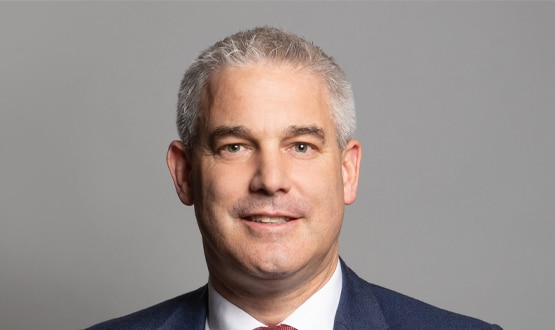Government to invest £30m in innovative technology for NHS
- 3 October 2023

The Department of Health and Social Care (DHSC) said Tuesday it will invest £30 million in innovative technology for the NHS. It said the investment would help cut waiting lists, speed up diagnosis and deliver new and improved ways to treat patients.
The money will ease pressures on the NHS this winter and could include the expansion of 3D checks that accelerate cancer tests new logistics solutions such as the use of drones, the DHSC said in a statement on its website.
Other possible uses include expanding virtual wards to allowing more patients to receive the care they need at home, freeing up hospital beds. Over 9,800 virtual ward beds have already been created, and the NHS is on track to meet its target and deliver 10,000 ahead of winter.
Integrated care systems (ICSs) will be able to submit bids to DHSC and NHSE to access the funds so they can roll out the technology – with applications expected to open this month. The funds are available to each region in England.
Health and Social Care Secretary Steve Barclay said: “It is vital that clinicians have access to the latest technology to save staff time, deliver high quality care and help cut waiting lists – one of the government’s top five priorities.
“This investment will see the latest tech innovations rolled out across the NHS. From virtual ward beds to wearable medical devices, patients will be better supported, and we will ease pressures on hospitals this winter.
“We’re preparing for this winter earlier than ever before including delivering thousands more hospital beds and hundreds of new ambulances.”
ICSs will be able to allocate the funding based on local needs. Key possible uses include expanding virtual wards to allowing more patients to receive the care they need at home, freeing up hospital beds. Over 9,800 virtual ward beds have already been created, and the NHS is on track to meet its target and deliver 10,000 ahead of winter.
ICSs could also invest in wearable medical devices for use by patients at home, to aid diagnosis and management of numerous chronic conditions – these devices allow the monitoring of vital signs such as blood oxygen levels, heartbeat and blood pressure.
Alternatively, investing in digital 3D and other imaging technology could bolster diagnostic tests, supporting the NHS to detect and treat cancer and other serious illnesses earlier.
NHS interim national director of transformation Dr Vin Diwakar said: “The NHS’s world-leading ability to adopt new technology has already helped more than 210,000 patients be treated in their own homes through the rollout of virtual wards, and this new funding will allow the health service to adopt more innovations that improve patient care and reduce pressure on wider services.”
Ellie Kearney, director of external affairs of the Health Tech Alliance, a coalition of health technology companies and stakeholders from across the NHS and wider health system, added: “We welcome the £30 million provided to support ICSs adopt technology that will reduce waiting lists, speed up diagnosis and deliver new and improved ways to treat patients.“However, our members feel disappointed that the original medtech adoption fund, outlined by a proforma in March, did not materialise; particularly when it is difficult for technologies to get adopted and the current procurement process is lengthy.“We are keen to work with the Government and NHSE to improve and accelerate the medtech adoption process for the long-term to transform patient outcomes and workforce efficiency.”
New investment builds on previous government funding
Earlier this year, the government published its Medical Technology Strategy which set out steps to ensure patients can access safe, effective and innovative technology through the NHS.
The new money builds on the £21 million AI diagnostics fund, which aims to improve access to the latest AI technology to diagnose and treat patients more quickly.
NHS Trusts were invited to bid for funding to accelerate the rollout of the most promising AI imaging and decision support tools to help diagnose patients more quickly for conditions such as cancer, stroke and heart conditions.
The new funding comes on top of a series of other measures the government is taking to support the NHS this winter. In September, an additional £200 million was invested in the health service to boost resilience and help patients get the care they need as quickly as possible in the coming months.
The Urgent and Emergency Care Recovery Plan, announced in January, also committed to deliver 5,000 additional permanent, fully staffed hospital beds, 10,000 virtual ward beds and 800 new ambulances, backed by £1 billion.





